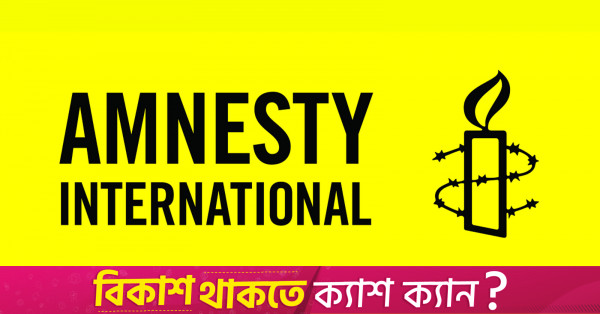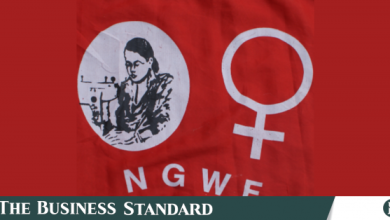Joining UN convention on enforced disappearances is a much welcome first step for Bangladesh: Amnesty


Logo of Amnesty International. Photo: Collected
“>
Logo of Amnesty International. Photo: Collected
The signing of the International Convention on Enforced Disappearances is a much welcome first step in the long road to truth, justice, and reparations for victims and their families in Bangladesh, Smriti Singh, regional director for South Asia at Amnesty International said in a statement today (30 August).
Responding to the signing of the International Convention for the Protection of All Persons from Enforced Disappearances by the interim government of Bangladesh’s Chief Adviser Muhammad Yunus yesterday, Smriti Singh also said, “Moving forward, the interim government must proactively work towards the full implementation of the Convention by ratifying it and enacting a strong domestic legislation that recognises the continuous nature of the crime and considers incidents of enforced disappearances that have already occurred prior to its enactment.
“It must also allow for the United Nations Committee on Enforced Disappearances to ‘receive and consider communications’ on behalf of victims, as per Article 31 of the UN Convention.”
The inquiry commission set up by the government earlier this week must be adequately resourced and equipped to carry out thorough, transparent and effective investigations into all cases of enforced disappearances in the country, she added.
“Its mandate must be extended to include cases of enforced disappearances prior to 2010. The commission should work in an inclusive, transparent manner while engaging with civil society and victim groups.
“It must ensure that suspected perpetrators of crimes under international law are brought to justice in fair trial and without recourse to the death penalty,” she further added.
According to the Bangladeshi NGO Odhikar, between 2009 and June 2024, at least 708 cases of enforced disappearances were reported.
Following former prime minister Sheikh Hasina’s ouster in early August, at least three people who were forcefully disappeared were released from secret prisons in the country: Michael Chakma, Abdullahil Aman Azmi, Ahmad Bin Quasem.
On 27 August, the interim government announced a five-member commission of inquiry that would investigate reports of enforced disappearances between January 2010 and August 2024.




